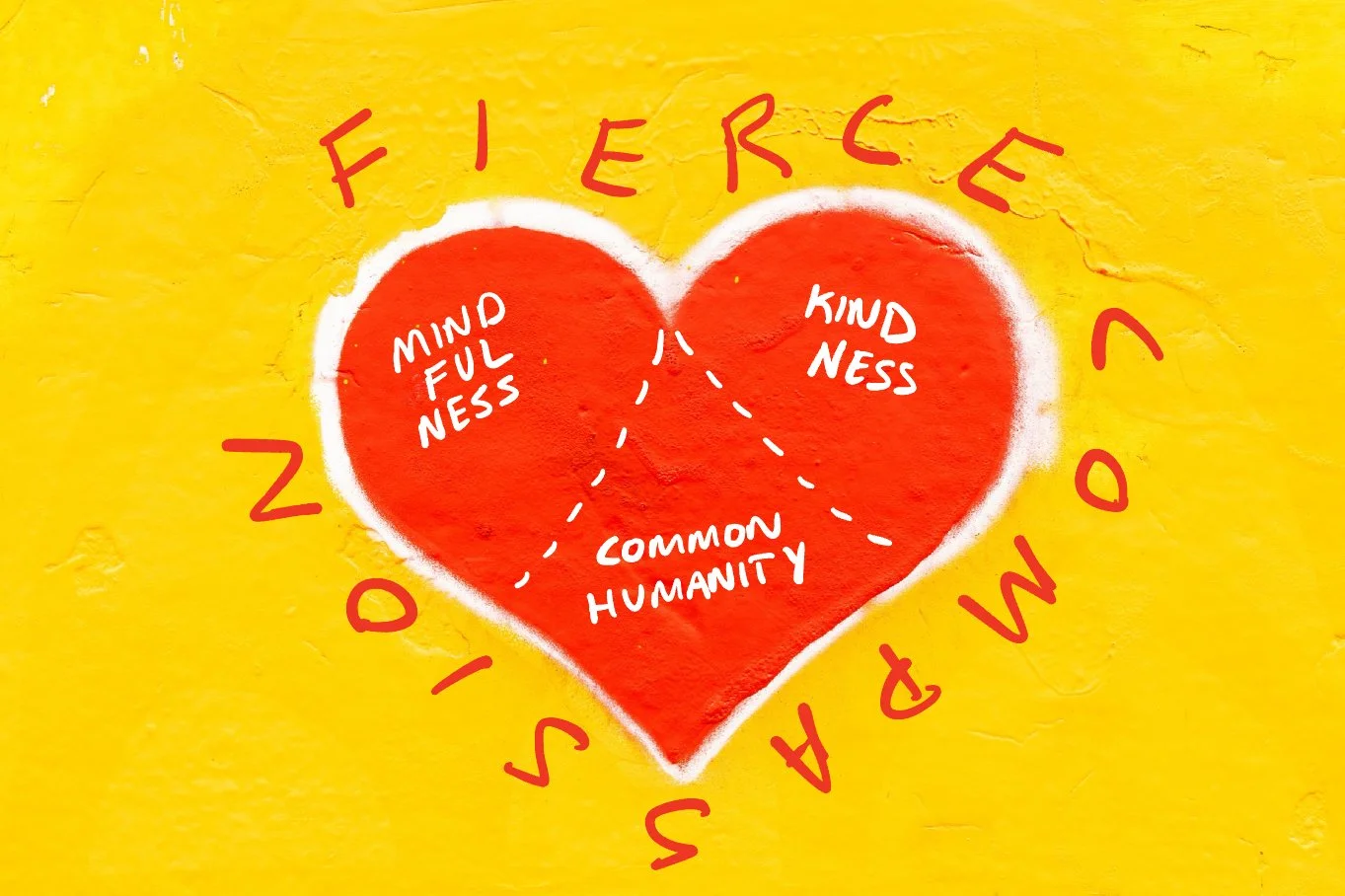Compassion, defined
Compassion sometimes reads like a vague sort of niceness, but I find that interpretation a poor guide. It is too passive and too easily dismissed. To give the idea more weight, consider Chis Germer’s explanation of fierce compassion.*
Germer’s fierce compassion is informed by Kristen Neff’s yin and yang of compassion, which incorporates both nurturing (yin) and action (yang). He teaches that fierce compassion has three core aspects: mindfulness, common humanity, and kindness. In addition, he cautions that each aspect has “enemies” that block compassion in the world, including both near (everyday) and far (extreme) obstacles.
The far enemies of each may seem exactly that—far. However, in light of current events and our bitter political discourse in the U.S., it is easy, if frightening, to see how quickly one can slide into these extremes:
Far enemy of mindfulness is emotional reactivity.
Far enemy of common humanity is demonizing.
Far enemy of kindness is hostility.
The near enemies of compassion may seem less threatening on the surface, but they are equally dangerous because they erode compassion in small ways throughout the course of our everyday interactions:
Near enemy of mindfulness is complacency (which lulls us into inaction).
Near enemy of common humanity is sameness (which obscures the precious uniqueness of each person).
Near enemy of kindness is pity (which establishes hierarchy and becomes a self-protective barrier to empathy).
Each day, in our ordinary activities, we have opportunities to choose and cultivate compassion. As we move through the world and this moment in history, this can be a north star. Even when we don’t know how to make a grand gesture (or which grand gesture will make a difference), we can build a more compassionate world within the multitude of small moments.
Most of us live into this idea beautifully…some of the time. Other times, we miss it entirely. And that’s okay; we’re only human. (This probably goes without saying, but, yes, it’s a struggle for me too.)
The goal, as I see it, isn’t perfection, but courage—for learning, for trying, and, as much as we are able, for moving closer to others’ suffering with honesty and love.
Let’s keep going.
*Article discovered via Brene Brown’s Unlocking Us podcast with Chris Germer.
Every other Friday, I share 5 things to consider and a treasure chest of links in my Helping Friendly Newsletter. Subscribe here (it’s free).
